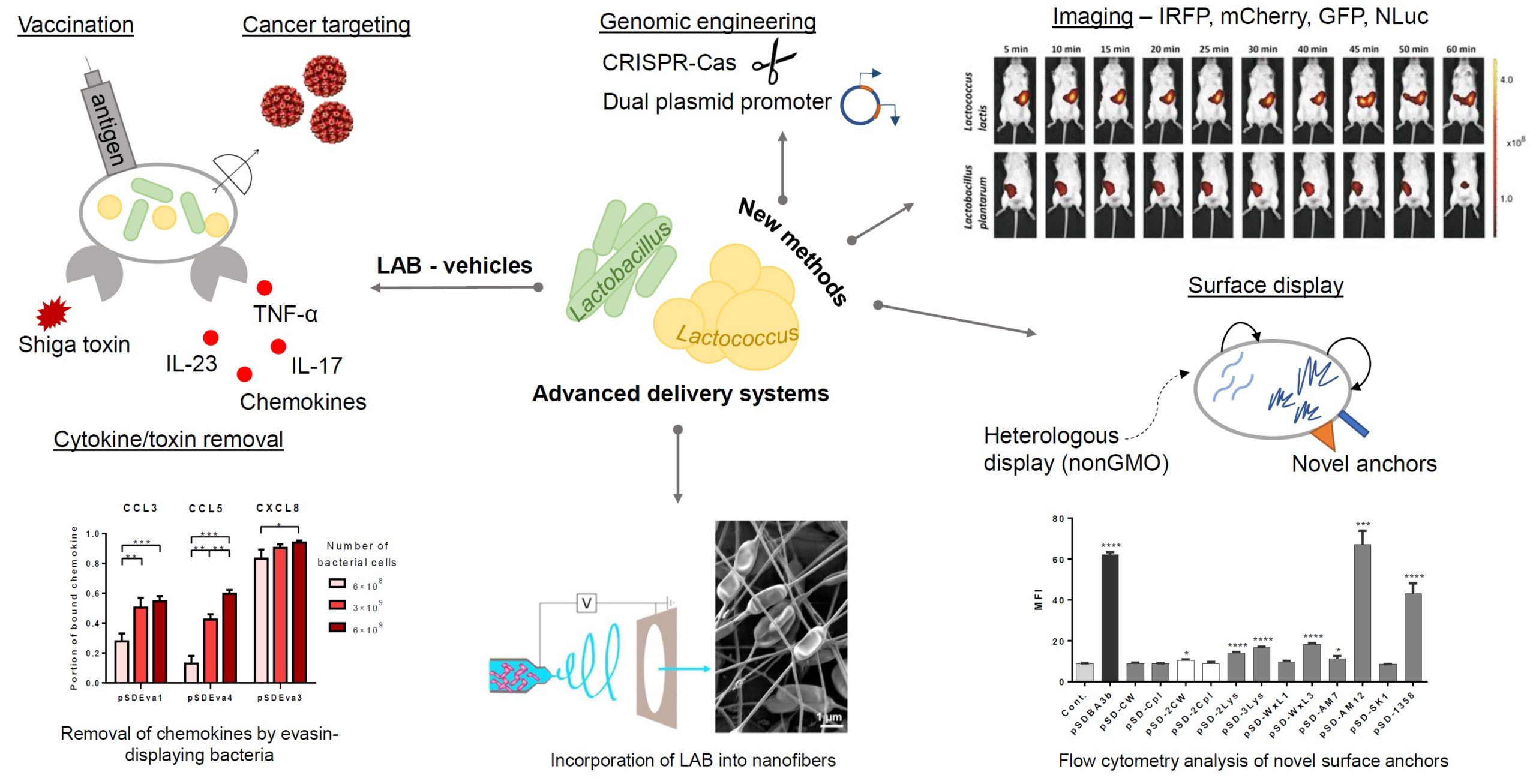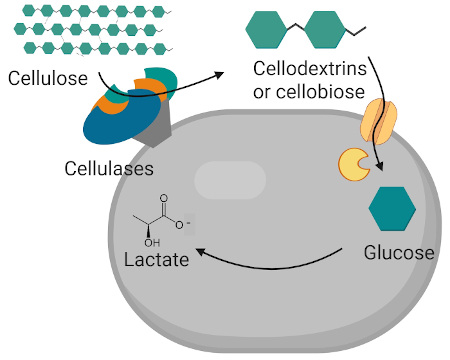Probiotics and engineered lactic acid bacteria
In recent years, the awareness of the importance of human microbiota (collection of all microorganisms that dwell on our body) in numerous diseases is increasing. The importance of microbiota composition overlaps with, and is complementary to, the studies of beneficial bacteria, probiotics. The most common probiotics come from the group of lactic acid bacteria, mostly from the genera Lactobacillus and Lactococcus.
Our research includes biotechnology and genetic engineering of probiotic and other lactic acid bacteria, and is organized in three parts. The first part includes the development of genetically engineered lactic acid bacteria as vehicles for the delivery of therapeutic molecules to different mucosal surfaces. We have developed bacteria with the abilities to bind proinflammatory cytokines (TNFα, IL-17, IL-23, chemokines for the treatment of inflammatory bowel disease), to bind shiga toxin, to target cancer cells and to deliver viral antigen for the purpose of vaccination. In the second part, we have developed methods that facilitate the study of lactic acid bacteria. These include the assessment of novel anchors for surface display, approach for nonGMO surface display, in vivo imaging of lactic acid bacteria in mice, and first CRISPR-based tools for genomic engineering of Lactococcus lactis. The third part includes development of advanced delivery systems for probiotics. We have effectively incorporated different lactobacilli in nanofibers, confirmed their viability over extended storage period, and thereby enabled concomitant drying and formation of dosage form for probiotics.

The ERA-Net CoBioTech Cell4Chem project has aimed to provide new tools and strategies to produce specialty chemicals caproate and caprylate from sustainable feedstocks, such as agro-industrial waste, by engineering and steering microbial consortia. Our role was to engineer lactic acid bacteria to degrade cellulose and convert it into lactic acid.

Selected publications
- PLAVEC, Tina Vida, ŠTRUKELJ, Borut, BERLEC, Aleš. Screening for new surface anchoring domains for Lactococcus lactis. Frontiers in microbiology, 2019, 13, 10:1879.
- ŠKRLEC, Katja, ZUPANČIČ, Špela, PRPAR MIHEVC, Sonja, KOCBEK, Petra, KRISTL, Julijana, BERLEC, Aleš. Development of electrospun nanofibers that enable high loading and long-term viability of probiotics. European journal of pharmaceutics and biopharmaceutics, 2019, 136, 08-119.
- BERLEC, Aleš, ŠKRLEC, Katja, SLUGA, Janja, OLENIC, Maria, ŠTRUKELJ, Borut. Single plasmid systems for inducible dual protein expression and for CRISPR-Cas9/CRISPRi gene regulation in lactic acid bacterium Lactococcus lactis. Scientific reports, 2018, 8, 1009.
- ŠKRLEC, Katja, PUCER JANEŽ, Anja, ROGELJ, Boris, ŠTRUKELJ, Borut, BERLEC, Aleš. Evasin-displaying lactic acid bacteria bind different chemokines and neutralize CXCL8 production in Caco-2 cells. Microbial biotechnology, 10, 6, 1732-1743, 2017.
- BERLEC, Aleš, ZAVRŠNIK, Janja, BUTINAR, Miha, TURK, Boris, ŠTRUKELJ, Borut. In vivo imaging of Lactococcus lactis, Lactobacillus plantarum and Escherichiacoli expressing infrared fluorescent protein in mice. Microbial cell factories, 2015, 14 (181), 1-14


